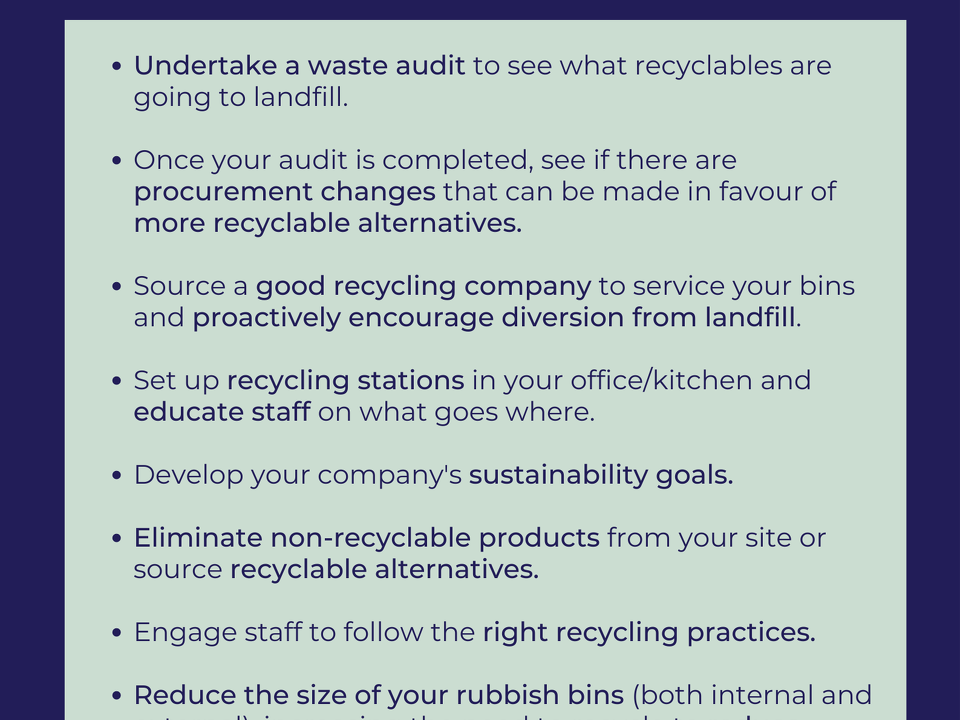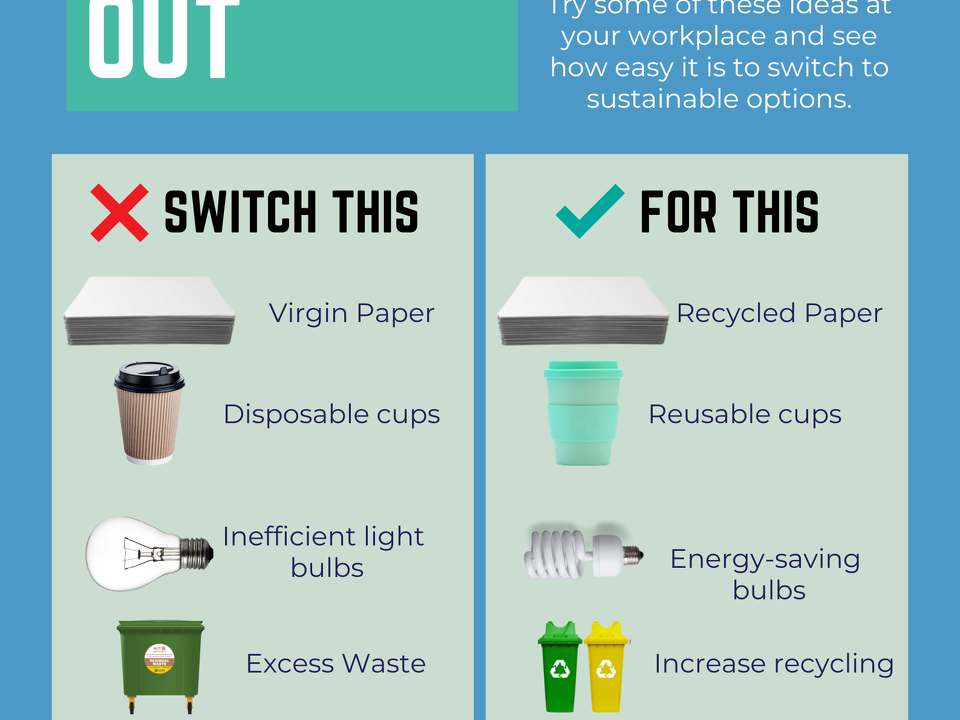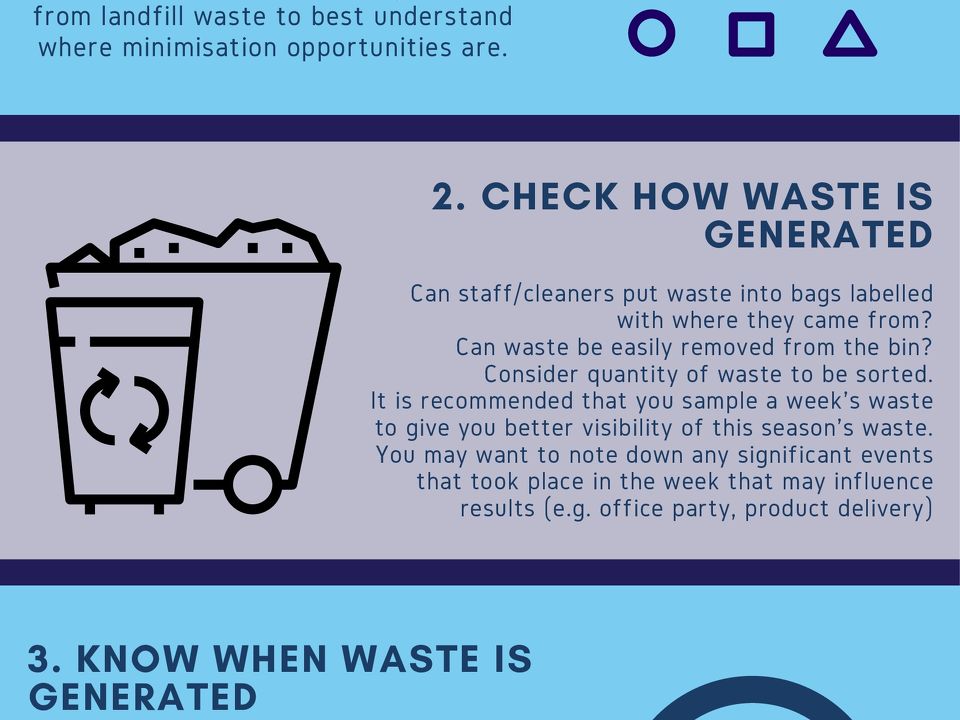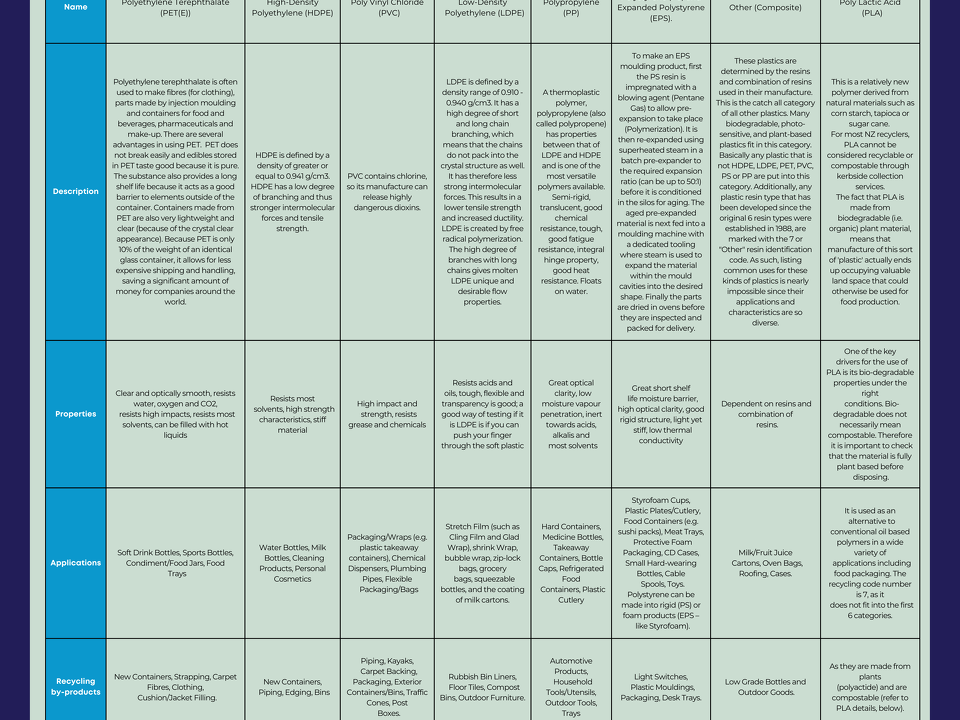Recycling for Business
Business and Industry
Businesses generate a great deal of waste and play a key role in helping to conserve our resources, as well as encouraging customers to use them more wisely.
A high percentage of recycled resources are collected from businesses, as manufacturing waste and as waste collected from customers.
Businesses play a key role in helping reduce waste to landfill. The volume of waste generated at commercial sites as well as the level of separation and accessibility to services place businesses in a favourable position to separate and recycle more materials than at the residential level. Businesses considering sustainability targets and objectives must look at waste minimisation strategies, understand their waste make up and track progress towards minimising waste destined to landfill in favour of procuring recyclable alternatives or phasing waste streams out completely.
While the more common recyclable materials seem to be adequately collected (but not necessarily recycled), businesses are seeking a wider range of collection services to help them achieve zero-waste status. Beyond sustainability targets, the reasons below reinforce the importance of businesses, building owners and property managers to work together to implement effective recycling systems:
Marketplace image
Achieve a better marketplace image through demonstrated responsibility toward the environment. Customers, clients and the general public are increasingly demanding that organisations ‘do the right thing’. Promoting your efforts in the local media can attract new customers and enhance relationships with existing customers.
Financial savings
Recycling isn’t expensive. In fact, there are financial benefits in waste minimisation and recycling. Recycling services are often priced at such a level that they are competitive or cheaper than sending material to landfill. With waste levies going up annually, recycling is a cost-effective exercise.
Staff morale & team building
There are positive social aspects to recycling, such as improved staff morale from knowing they are looking after the environment, and as a vehicle for team building by providing a common project for staff to work on outside of their everyday roles.
Reduced environment impact
Removing recyclables from the waste stream lowers the environmental ‘footprint’ of the building through reducing waste to landfill. In addition, the production of goods made out of the material recycled will generally use less water, electricity and other resources than making products from virgin materials. This further reduces resource use.
Resource efficiency
A recycling project can be the initial project in a larger programme to improve the resource efficiency of the building. Other areas of resource use that might be addressed include looking at reducing energy and paper use, and sustainable purchasing.
Collaborate in waste minimisation
Small to medium enterprises (SMEs) make up a large proportion of NZ businesses. In SMEs, one person often takes on a variety of roles within the organisation, so the time and resources available to address environmental issues can be very limited. The big advantage for businesses involved in a building-wide project is that tasks can be shared, minimising the input required by each individual business and avoiding duplication. A shared project also reduces the number of collection companies coming into the building and simplifies security issues.

Waste Levy
Beyond the benefits of protecting our environment, minimising virgin resource extraction, the commercial adoption of a reduce, reuse and recycle philosophy is financially beneficial with waste levies going up year on year. With municipal disposal facilities (class 1) waste levy going up to $60 per tonne from 1 July 2024, waste generated from households, commercial, industrial or institutional sites are all subjected to higher costs. Therefore, with costs for sending waste to landfill increasing, a waste reduction strategy and improved landfill diversion benefits the bottom line as well.
Waste Audits
Many businesses are not fully aware of how many recyclable waste products are valuable resources that can be converted into new products. Check if your Waste Company works with you to help identify and remove recyclable waste from the various waste processes. Offices, factories, restaurants and companies dispose of a large volume of solid waste. Contained in this waste are resources that can be recycled, including cardboard boxes, office paper, bottles, aluminium cans and plastics.
It costs businesses more to send recyclable waste to landfills than to have it collected, sorted and sent to a recycling centre. Waste audits provide data insights on waste make ups and profiles, indicating areas of opportunities, allowing businesses to more effectively manage their waste. Once a Waste Stream Audit is completed, a waste reduction program can be introduced to reduce business costs, increase sustainable business practice and remove the need for landfills. A successful waste reduction program depends upon the participation and support of individuals and businesses. Operating costs are key for businesses and this is an added incentive for businesses to be serious about recycling.
Your Waste Company should be able to provide a recycling service for most of the recyclable products that a company may have. Trained staff should be able to visit and carry out a waste audit, advising on what can be recycled to save costs and benefit the environment.
Check out the waste audit guide and recycling ideas resources for more information.





